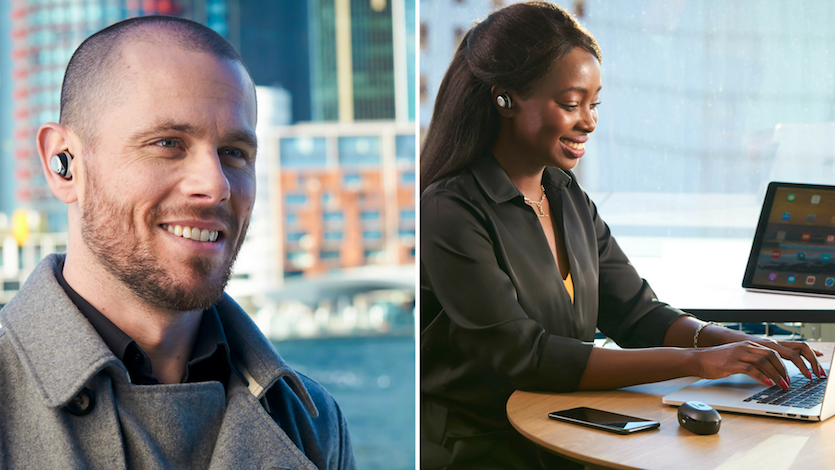
It’s a new ‘Smart World’
Traditional industries are being disrupted by innovative new technology companies who challenge the ways things have been done for decades.
Tesla in the automobile industry, Amazon in the retail industry, Apple in the music industry, Facebook in the advertising industry and so many more are driving new approaches to fundamentally change the way we conduct our lives and interface with the world around us.
At the forefront of this change are the rapidly growing wearables and IoT Intelligence of Things (our preferred acroymn) industries. Driven by smart technologies, these industries are growing rapidly because they allow both companies and individuals to do what was unheard of only a few years ago.
Consumer-facing businesses are seeking connected, intelligence-based platforms for their products and are continually exploring new frontiers in connected smart devices that make their customers’ lives easier and enhance their quality of life.
The fact is companies in this rapidly changing environment must embrace this new “Smart” or “Intelligent” world to win. There is just no choice anymore.
The Convergence of Health and Consumer Electronics is Happening Now
One of the major impacts of the growth of the wearables/IoT industries is the convergence of the health and consumer electronics industries. Smart connected devices are now delivering platforms to enhance people’s health-care focus or, at least, provide data to drive better quality of life.
Wrist-based wearables, such as Xiaomi, Fitbit and Apple Watch, have claimed fitness tracking capabilities and vital sign measurements designed to improve health monitoring along with other ‘smart’ features.
According to Ramon T. Liamas, Research Manager for IDC’s Wearables team:
“Tomorrows wearables will become more fully featured and multi-functional, spanning health and fitness to communication and productivity.”
IDC predicts continued growth in this sector with shipments of wearables growing from 113.2 million in 2017 to 222.3 million in 2021, with smart devices to drive the growth.
This convergence is causing disruption on a number of fronts. Existing consumer electronic retailers are changing up their merchandising strategies to attract new customers into their stores with “health and wellness’ categories that are more like medical devices rather than consumer electronics.
Health care retailers and distributors are embracing more affordable quasi health-related product categories as consumers seek more access to products that deliver comparable health benefits than more expensive medical devices.
Nuheara’s Focus on Hearing Intelligence
Smart devices are now making an impact on the hearing health and headset industries. Now recognized as a new and rapidly growing category, ‘hearables’ are predicted by Juniper Research to grow seven-fold in the next 5 years to 285 million units in 2022 from 43 million in 2017.
Interestingly it is predicted that smart hearables will see the greatest growth with assistive hearing devices representing 68% of the market, according to research author James Moar.
“While the hearables category began in fitness, it is now much broader… Being able to adjust your hearing appeals to many more people, and will ultimately de-stigmatise hearing aids and enrich the lives of many with hearing loss.”
Nuheara is leading this transformation now by blending the core capabilities of three distinct industries: headset hardware, smart devices and hearing technology.
src=”https://www.nuheara.com/wp-content/uploads/2020/11/hearing-intel.jpg” alt=”ingredients of hearing intelligence” width=”900″ height=”345″ />
True Wireless technology is fundamentally changing the headset industry as smart phone manufacturers remove the 3.5mm jack socket. Nuheara was one of the first hearables companies to embrace true wireless, which has seen many companies go under due to the complexity of embracing this new challenging technology arena.
Smart wearable devices are now moving from the wrist to the ear to clothing, and consumer expectations are more demanding.
“Just as consumers expect smart watches to do more than just tell the time, smart hearables will allow consumers to do more than play music and make phone calls.”
The challenge for wearables companies is to understand that building smart technology for the ear has unique challenges compared to the wrist and other parts of the body. Nuheara has remained singularly focused on the ear as it is our heritage and what we know.
As for sophisticated hearing technology, it no longer remains just the domain of hearing aid companies. Cutting edge hearing technology companies like Nuheara are deploying intelligent technologies by combining Bluetooth, Near Field Magnetic Induction, Digital Signal Processing, Artificial Intelligence, and Audio and Software capabilities to deliver affordable yet powerful intelligent hearing experiences for our consumers.
But what underpins Nuheara’s approach to hearing intelligence is how technology can impact consumer’s lives. Building smart devices should be focused on changing people’s lives and making an impact on their quality of life.
“Simply put, Nuheara is enhancing and amplifying human experiences. “


